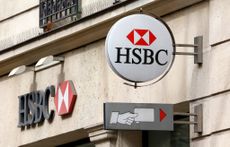Premium Bonds vs savings accounts: which is better for your money?
Savings offer a guaranteed return, but as they don’t match inflation Premium Bonds can be a safe and fun alternative – which is the best for you?


If you’re looking to put your savings somewhere, deciding on where is an important call ‒ here we put Premium Bonds vs savings accounts in a head-to-head.
There’s plenty of options if you’re looking at our best savings accounts to choose from, but you may be tempted to buy Premium Bonds as they have merits too. Here we run through the pros and cons of each to help you make a more informed choice.
Premium Bonds vs savings accounts
The pros of traditional savings accounts

The pros and cons of putting your money in a savings account.
Putting your cash in a traditional savings account has its merits.
- The interest rate offers you a guaranteed return. For example, Aldermore’s Easy Access Account has an interest rate of 2.75%. A £1,000 deposit here will earn you £27.50 over the course of a year. Premium Bonds can’t offer you this.
- You can mitigate the effects of rising inflation. While you need a savings account that pays an interest rate above inflation (currently 11.1%) in order to grow your savings in real terms, such accounts simply don’t exist right now. However, limiting the damage to your cash could be the next best option. The best savings account on the market is Barclays Rainy Day Saver that pays 5.12% on savings up to £5,000. (Note you need its current account).
- Different types of accounts offer different benefits: Fixed-rate accounts will generally give you higher interest rates, but you won’t be able to access your money (or sometimes add money to the account) for a set time period. Meanwhile, an easy access account will allow you to make withdrawals at any time making them an ideal place for emergency cash.
- Interest rates on savings accounts may keep on rising as a result of rises in the Bank of England’s base interest rate. So higher guaranteed returns that continue to mitigate the effect of inflation could be on the table.
- You can enjoy tax-free returns. The personal savings allowance means that most taxpayers can earn a certain amount in interest from their savings accounts before having to pay any tax on those returns. The thresholds for the savings allowance stand at £1,000 per year for basic rate taxpayers and £500 for higher rate taxpayers. With interest rates on savings accounts having been so low in recent years, it’s been harder for savers to hit that limit, meaning that many savers have enjoyed tax-free returns from their savings.
- Your money is protected up to £85,000. In the event of the savings account provider going bust, the Financial Services Compensation Scheme protects deposits up to £85,000 per person, per institution.
See our article on the best savings rates for more.
The cons of traditional savings accounts
There are a couple of negatives
- Money in a low-interest savings account is being eroded by inflation. If you’re in a position to invest your money in the stock market it can certainly give you a better shot at outperforming inflation and growing your money in real terms.
- If you save a big amount you will pay tax. If you start earning above the personal savings allowance, then you will have to pay tax on the returns from the money you are saving. Basic rate taxpayers will start paying tax on their savings returns once they have £42,500, while higher rate taxpayers will pay once they have £21,250 if they stick it in a savings account that pays 2.35%, according to research by AJ Bell.
- If interest rates on savings accounts keep on rising then it will actually push more savers to pay tax on the returns from their savings. Moving to a two-year fixed rate paying 4.5% would see those thresholds drop to £22,200 for a basic rate tax payer and £11,100 for a higher rate tax payer on the example above.
The pros of Premium Bonds

The pros and cons of Premium Bonds
Premium Bonds are the nation's biggest savings product, with more than 21m people saving over £119bn in them. And there’s reasons for their popularity.
- It’s a bit of fun on the second working day of the month, when prizes are announced. There’s a chance of winning several prizes of the same or different amounts in the same month: £25, £50, £75, £100, £500, £1,000, £5,000, £10,000, £25,000, £50,000, £100,000 or £1m.
- The value of the total prize draw and the number of prizes awarded can change. For example, in October the odds of winning improved from 24,500 to 1 to 24,000 to 1. As a result, the number of £100,000 prizes went up from 10 to 18, while there are now 36 prizes worth £50,000 rather than the previous 19 - and there are over a million more £25 prizes to be won.
- Any bonds you buy up to the value of the maximum £50,000 are protected. Premium Bonds are sold by National Savings and Investments (NS&I), which is owned by the government - so money is 100% protected.
- You can enjoy tax-free prizes. This is an advantage if you actually win a big cash prize - it is completely tax-free. Compare this to saving a similarly large amount in a savings account: If you start earning above the personal savings allowance, then you will have to pay tax.
- It’s an easy-access option. You can withdraw your cash from Premium Bonds at any time and reasonably quickly (2 or 3 working days).
The cons of Premium Bonds
You could win nothing. And there’s no guarantee you’ll win anything - ever. For this reason, you may prefer to at least earn a set, guaranteed amount of interest from one of the best savings accounts out there even if rates don’t currently beat inflation.
Look After My Bills Newsletter
Get the best money-saving tips, tricks and deals sent straight to your inbox every week. Make sense of your money in partnership with The Money Edit.
The verdict - for guaranteed returns a savings account beats Premium Bonds
Savings accounts are generally better than Premium Bonds, especially if you’re locking your money away for some time. Savings rates may also keep on rising as a result of rises in the Bank of England’s base interest rate.
Any rises in the Premium Bonds prize rate are much rarer. Plus you’re ultimately dependent on luck to win anything on Premium Bonds - let alone enough prizes to beat the guaranteed return you get in a savings account.
Related articles
Katie is staff writer at The Money Edit. She was the former staff writer at The Times and The Sunday Times. Her experience includes writing about personal finance, culture, travel and interviews celebrities. Her investigative work on financial abuse resulted in a number of mortgage prisoners being set free - and a nomination for the Best Personal Finance Story of the Year in the Headlinemoney awards 2021.
-
 Three energy firms pay £8m in switching compensation - has your provider paid out?
Three energy firms pay £8m in switching compensation - has your provider paid out?More than 100,000 customers have received compensation after changing providers, but is now a good time to switch energy suppliers?
By Tom Higgins Published
-
 Save £300 on your supermarket shop with cashback accounts
Save £300 on your supermarket shop with cashback accountsBanks, credit card companies and cashback sites are all offering cashback on your supermarket shop, but can you use them all to max out your savings?
By Vaishali Varu Published
-
 Save £300 on your supermarket shop with cashback accounts
Save £300 on your supermarket shop with cashback accountsBanks, credit card companies and cashback sites are all offering cashback on your supermarket shop, but can you use them all to max out your savings?
By Vaishali Varu Published
-
 More than 150,000 grandparents missing out on £1,500 state pension uplift: how to claim
More than 150,000 grandparents missing out on £1,500 state pension uplift: how to claimGrandparents who provide childcare by looking after their grandchildren could be missing out on valuable state pension money worth thousands. We look at how much extra you could get and if you’re eligible
By Stephanie Baxter Published
-
 Can you reclaim bank charges?
Can you reclaim bank charges?If you’ve incurred bank charges over the years, these can add up to hundreds of pounds – but can you get your money back? We look at whether you can make a claim and how to do it
By Stephanie Baxter Published
-
 HSBC extends deadline for customers to secure bigger interest-free overdraft
HSBC extends deadline for customers to secure bigger interest-free overdraftHSBC customers now have until 10 May to increase their interest-free overdraft limit from £25 to £500. First Direct, Lloyds and Nationwide also offer similar support. We explain everything you need to know
By Katie Binns Last updated
-
 New banking hub locations revealed - is there one near you?
New banking hub locations revealed - is there one near you?The rise of banking hubs is in response to a stream of local branch closes. With more planned to launch soon, we look at what services they offer and where you can find one
By Stephanie Baxter Published
-
 April 2023 premium bond winners revealed - are you a millionaire?
April 2023 premium bond winners revealed - are you a millionaire?Two premium bond holders have won £1 million each this month and there are many other prizes for another 5,018,742 winners in April. We look at how to find out if you’ve won
By Stephanie Baxter Published
-
 State pension underpayment warning - have you been underpaid and eligible for more than £11,500?
State pension underpayment warning - have you been underpaid and eligible for more than £11,500?Thousands of retirees, mainly women, are still owed money by the government after being underpaid their state pension. We explain what you need to know
By Katie Binns Last updated
-
 State pension age rise to 68 delayed - what it means for your retirement
State pension age rise to 68 delayed - what it means for your retirementThe state pension age will stay at current levels for longer than expected after the government today confirmed that it has shelved plans to increase it to 68 by the late 2030s. We explain what it all means for you
By Stephanie Baxter Last updated